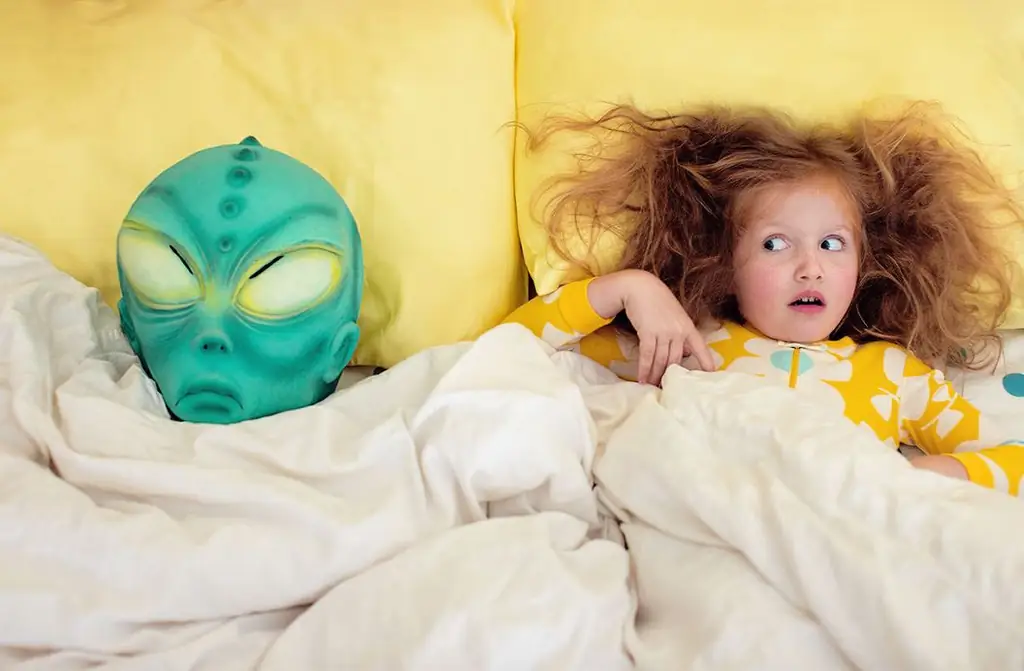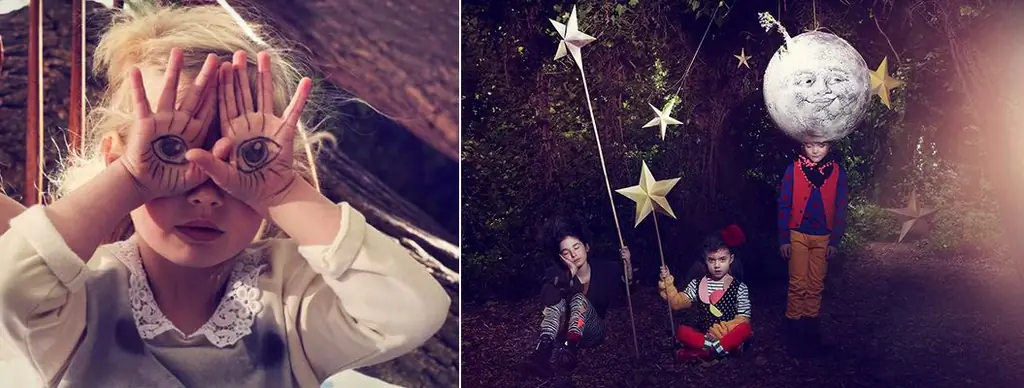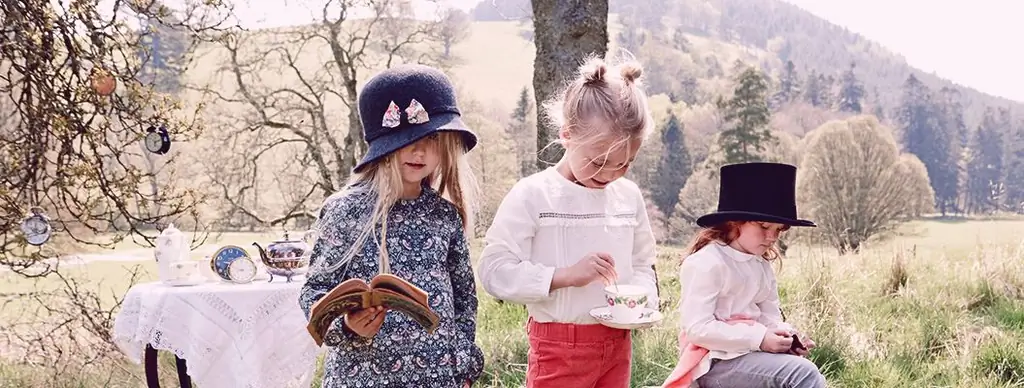- Author Adrian Jeff jeff@psychologosportal.com.
- Public 2024-01-07 19:39.
- Last modified 2025-01-24 14:09.

The child is afraid to be alone at home. Reasons and tips
Any child can be afraid if he feels that his life and health are in danger, that is, if there is no adult nearby. This is a healthy fear, it is absolutely necessary and has a protective function. But when there is nothing to be afraid of, but there is still fear and no reasonable arguments, persuasions, distractions and chattering help …
Many parents face this problem. The child is afraid to be alone at home, even for a few minutes. If there is no father or grandmother nearby, poor mother cannot even jump out for bread.
The fear of being alone can accompany a child from a very early age, or it can arise suddenly after some event. We will deal with the causes of such fears in children and identify ways to solve this problem.
The two main causes of fear in children
This is not a misprint, indeed, there are only two basic reasons for children's fears. A deep understanding of these reasons is very important in order not to listen to meaningless or downright harmful advice, as well as so that parents themselves can help their child get rid of any unfounded fears.
Any child can be afraid if he feels that his life and health are in danger, that is, if there is no adult nearby. This is a healthy fear, it is absolutely necessary and has a protective function. But when there is nothing to be afraid of, but there is still fear and no reasonable arguments, persuasions, distractions and chattering help - it's time to turn to the system-vector psychology of Yuri Burlan.
So, the main reasons for children's fears:
- Violation of the child's sense of safety and security.
- The child has a visual vector.
The child is afraid to be alone if he is not sure about the reliability of the parents
Imagine: you are a small and defenseless creature and your whole life depends on one giant who can take care of you, protect you from dangers, order other giants to take care and not offend you. Or maybe they forget about you, or, conversely, start screaming, cursing and scaring you. Or your giant, perhaps weak and insecure himself, is afraid of everything in the world, and especially other giants. Will he be able to protect you? How will you feel in this case?
A sense of safety and security is the basis for the development of any child. Read more about this fundamental concept in the article.
If a child at 3-4 years old is afraid of being alone, maybe he is not sure that his mother will definitely return? Maybe you left it too long or left with strangers? This happens when the baby goes to the hospital, for example, and the mother is not allowed to see him. Or when the mother herself unexpectedly ends up in the hospital or leaves for the hospital for a new baby, and the baby is completely unprepared for this and feels abandoned.
If mom and dad quarrel and sort things out in front of a child, especially when the meanings "Leave and don't come back!" or "I'll leave and won't come back!", then the child wakes up an unconscious, unspoken fear of losing his family. He is afraid to stay at home alone, because he fears that one of the parents, especially his mother, may leave forever and not return.
If a mother brings up a child alone, if she is tortured, torn between work and home, not confident in herself and her future, this insecurity is automatically and unconsciously transmitted to the child, he loses a sense of security and safety. Depending on the child's vectors, this can be expressed in different ways, for example, by the fact that he is afraid to be alone. And the smaller the child, the more the mother's condition affects him.

Or, perhaps, in your absence, a drunken neighbor came, shouted, threatened, banged on the door and thereby terrified your baby. And now he is so scared that he is afraid even to tell you what happened. This happens when the child is not sure that you are guaranteed to be able to protect him from the abuser.
If your child is afraid of being alone, think carefully, what reasons does he have not to trust you?
Vision vector: a cocktail of fear and love
In the school camp, the guys love to tell each other scary stories at night, provoking each other to experience emotions together. Why do some even relatively adult 9-10-year-old children, after such entertainment, begin to be afraid to fall asleep without light or be left alone in a city apartment in broad daylight?
As a rule, these are children with a visual vector. Nature has endowed them with special sensitivity. Their fear "sits" closer than that of all other people, therefore it is they who are able to learn to feel another person subtly, to recognize his emotions and states.
Their emotions are strong and deep, much stronger than those of other children. And it depends only on upbringing whether the visual child will become a developed, intelligent, finely feeling and understanding person or will be anxious, afraid or hysterical for any reason.
If nature has rewarded you with such an enthusiastic, fearful visual miracle, be sure to read how to educate him correctly.
Key recommendations:
- Do not scold or shame the child for his fears, do not compare with other, more "courageous" children. The best thing you can do is give your little one support and confidence.
- Do not frighten Baba Yaga, Barmaley, someone else's uncle, Voldemort and other evil spirits. Children like that are the most afraid anyway.
- Do not read scary tales and fairy tales where cannibalism is present. These are such tales as "Kolobok", "The Wolf and the Seven Kids", etc. The child imagines himself in the place of the eaten hero. What do you think it would be like to be eaten?
- To develop compassion and empathy in the child, the ability to understand the feelings of other people. To do this, read fairy tales of compassion, classical literature. To teach to feel sorry for animals, and most importantly - people. Learning to worry about the heroes of works of art, the visual child learns to think about others, to understand their feelings, that is, to empathize. Instead of fear, love gradually settles inside, in which, as it is systematically known, there is no fear.

How to help your child stay home alone without fear
You probably already realized that you should never force a child to stay alone at home. This will only exacerbate his fears and further undermine his already fragile sense of security and safety.
Therefore, the most important thing is to create a favorable emotional background. Understand, he is not pretending, he is actually scared to be alone. You should not focus on fear, your competent behavior and actions can achieve the fact that fear will go away without a trace.
The most important thing is to understand your inner state. An anxious mother has an anxious child. Yuri Burlan's training "System Vector Psychology" helps adults to completely and forever get rid of their own fears and other psychological problems. And when the mother feels well, the condition of the children is also normalized. Hear one of the comments from a trained mom.
Play with your child more. Children who do not play ordinary, non-computer, children's games, in general, experience more problems in socialization, and they have much more fears. For children who are afraid to stay at home alone, afraid to enter a dark room, playing mother-daughter will be useful: imperceptibly weave into the game a story about how "a mother needs to leave, but the child remains at home alone and calmly goes about his business." Build the plot further, as mom returns and a happy life continues on.
If he is afraid to enter a dark room, come up with a flashlight game. For example, go into a room, take a flashlight on the table and read a secret message. Imagine! Playing with your child, you not only fight his fears, but also build trust between you, build the foundation of your happy family relationships.
Share your “success story,” whether heroic or humorous, about how you were afraid of something as a child and how you conquered that fear. Instill confidence in your little one that he too will be able to overcome his fear.
And most importantly - read books to your child! Good, correct books. Books should develop the soul of a child, teach him to sympathize, empathize. Do not be afraid of books, where at the end of the heroes you feel so sorry that you want to cry. These are soul-cleansing tears, like air necessary for the development of a child with a visual vector. For many trainees of the training "System-vector psychology", after reading the children of Andersen's sad fairy tale "The Girl with the Matches", the children's fear passed by itself:
The more you develop a child with a visual vector sensually and emotionally, the more subtly he learns to feel the states of other people, the more responsive and kind he will be, the less room for fears will remain in his heart.
Do you want the child to calmly and usefully stay at home alone and you yourself were sure that nothing will happen to him? So that you and he or she can adequately respond to a stressful situation? So that both you and your child are guided in the world around them and at first glance can determine which of the people around you can trust and who cannot?
Come to Yuri Burlan's free introductory online training "System Vector Psychology", the result is guaranteed by more than 21 thousand reviews.






